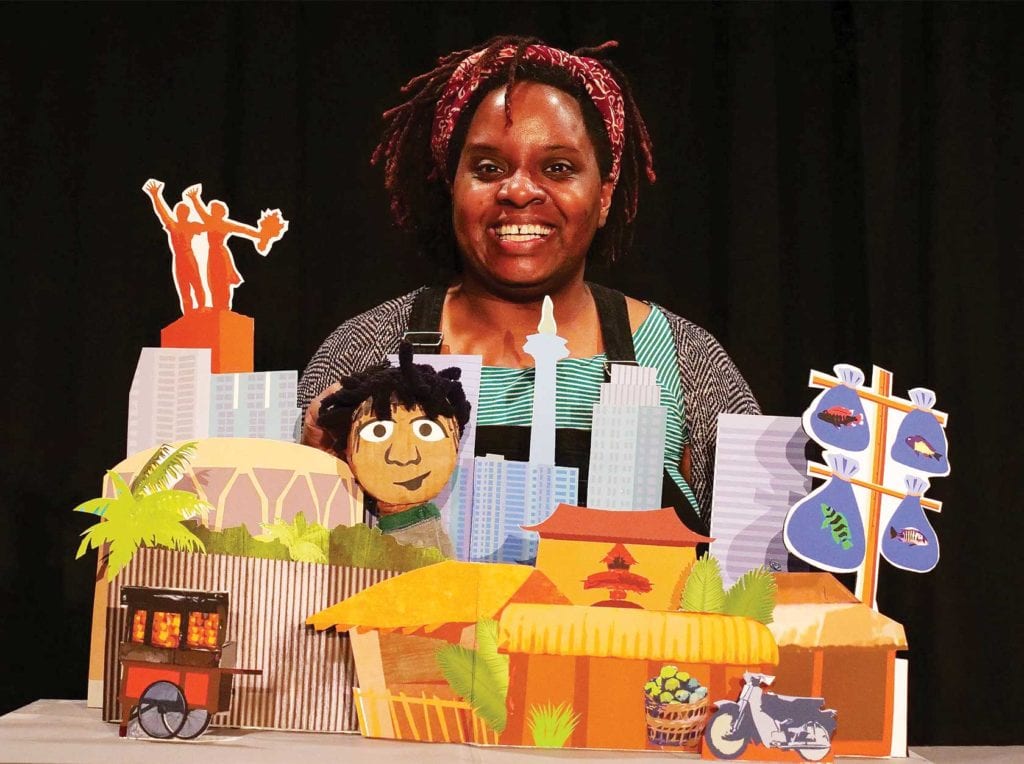
Puppet Showplace Theater in Brookline has opened applications for a new Black Puppeteer Empowerment Grant & Creative Research Residency for summer 2020. The grant offers five black artists $1,000 grants to support the research and development of new projects, along with mentorship from master puppeteer Brad Brewer and the facilitation of a performance of the works in progress.

John McDonough of Pumpernickel Puppets with the Troll puppet from The Three Billy Goats Gruff. PHOTO: ROXANNA MYHRUM
“We need to talk about racism in Boston, we need to look at practices in our own institution that we want to change,” says Roxanna Myhrum, artistic director of Puppet Showplace Theater. “In puppetry that means artists of color, specifically black artists, but it also means diversity of characters and stories and traditions that we present on stage.”
These grants are part of a long-term mission at the Puppet Showplace Theater to diversify voices in the industry. Performances in the past few years at the Brookline theater by well-known black puppeteers like Jeghetto and Tanya Nixon-Silberg are also part of this commitment to broadening the theater’s scope.

Students from the Trotter Innovation School on a field trip to Puppet Showplace Theater in 2019. PHOTO: ROXANNA MYHRUM
Myhrum says that the puppetry industry in the United States is often centered on white voices, despite the many talented black artists involved. There are big names in the industry, such as Kevin Clash, who voiced Elmo on “Sesame Street” from 1985 to 2012, but they’re not at the forefront of puppetry conversations. The history of puppetry is also global, an often unacknowledged fact. Myhrum says, “Some of the foundational origins of puppetry are in the African puppetry tradition. They’re some of the most celebrated and copied forms of performance in the world.”
Here in the U.S., there are many barriers to entry into the industry, including the economics of the practice, which often requires a heavy upfront investment from the artist to produce their work. Myhrum hopes this grant will help ease some of those burdens, while also making a safe space and community for these artists.
Artists nationally are encouraged to apply, as are artists who want to incorporate puppetry into another medium. Applicants don’t necessarily need to be formally trained puppeteers. The application deadline is June 27, and participants will be selected by July 1. Virtual presentations to the public of works-in-progress will stream in late August.
Myhrum believes that puppetry is a valuable platform for having challenging and contemporary conversations. She recalls Jeghetto’s performance “Just Another Lynching” at the Puppet Showplace Theater; the piece sparked in-depth dialogues after the show about the black American experience.
“We want people to be learning and engaging in puppetry in a way that is vital,” Myhrum says. “It’s an art and a practice that empowers expression that is complex and that helps us make sense of the world, that tells the stories that the world needs to hear now.”







